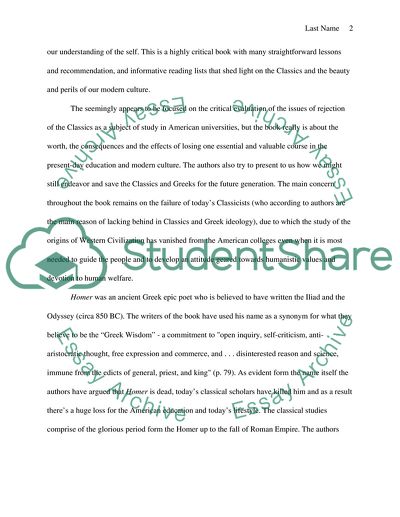Cite this document
(Who Killed Homer by Victor Davis Hanson and John Heath Book Report/Review - 1, n.d.)
Who Killed Homer by Victor Davis Hanson and John Heath Book Report/Review - 1. Retrieved from https://studentshare.org/history/1785322-do-a-book-report-who-killed-homer-the-dimece-of-classical-education-and-recovery-of-greek-wisdom-by-victor-davis-hansonjohn-healt
Who Killed Homer by Victor Davis Hanson and John Heath Book Report/Review - 1. Retrieved from https://studentshare.org/history/1785322-do-a-book-report-who-killed-homer-the-dimece-of-classical-education-and-recovery-of-greek-wisdom-by-victor-davis-hansonjohn-healt
(Who Killed Homer by Victor Davis Hanson and John Heath Book Report/Review - 1)
Who Killed Homer by Victor Davis Hanson and John Heath Book Report/Review - 1. https://studentshare.org/history/1785322-do-a-book-report-who-killed-homer-the-dimece-of-classical-education-and-recovery-of-greek-wisdom-by-victor-davis-hansonjohn-healt.
Who Killed Homer by Victor Davis Hanson and John Heath Book Report/Review - 1. https://studentshare.org/history/1785322-do-a-book-report-who-killed-homer-the-dimece-of-classical-education-and-recovery-of-greek-wisdom-by-victor-davis-hansonjohn-healt.
“Who Killed Homer by Victor Davis Hanson and John Heath Book Report/Review - 1”, n.d. https://studentshare.org/history/1785322-do-a-book-report-who-killed-homer-the-dimece-of-classical-education-and-recovery-of-greek-wisdom-by-victor-davis-hansonjohn-healt.


